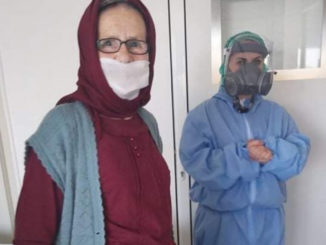
On visits to Bosnia, the foreign ministers of Britain, Austria and Hungary said the EU’s new approach to the troubled country – focusing now on economic issues – was the right one.
Bosnia’s Foreign Minister, Zlatko Lagumdzija, met his British counterpart, William Hague, on March 28 to discuss the European Union’s “new approach” to Bosnia and Herzegovina, which involves focusing on economic and social issues instead of on constitutional changes.
Lagumdzija’s office on Friday said the new approach would run in two directions. One will focus of Bosnia meeting the political conditions to continue on the path to EU membership. The other will focus on the real-life problems citizens face every day.
Hague visited Bosnia alongside the Hollywood star Angelina Jolie – both of whom participated in a conference on victims of sexual violence during the 1992-5 war.
Earlier, on March 27, Lagumdzija met the Austrian and Hungarian foreign ministers with whom he also discussed the new approach to Bosnia.
Austria’s Sebastian Kurz and Hungary’s Janos Martonyi said their countries supported Bosnia’s moves towards EU membership and were ready to help it overcome obstacles.
The two ministers said Bosnia needed a functional government, which was what its citizens clearly needed as well.
“We saw here that the majority of people want to join the EU,” Martonyi said, terming it, “a vision that can bring ethnic groups closer [together] in this country.”
Kurz added that Austria, Hungary and Bosnia had close cultural, economic and historic ties. [Bosnia formed part of Austria-Hungary from 1878 to the end of the First World War.] He recalled that around 150,000 people from Bosnia live in Austria today.
“The development of Bosnia and Herzegovina is very important for us, shown by the fact that Austria is the largest investor in this country,” Kurz added.
He maintained that the wave of street protests that erupted all over Bosnia in February should be seen as “a wake-up call”.
The protests forced four of the ten canontal governments in Bosnia’s Federation entity to resign. (BIRN)



